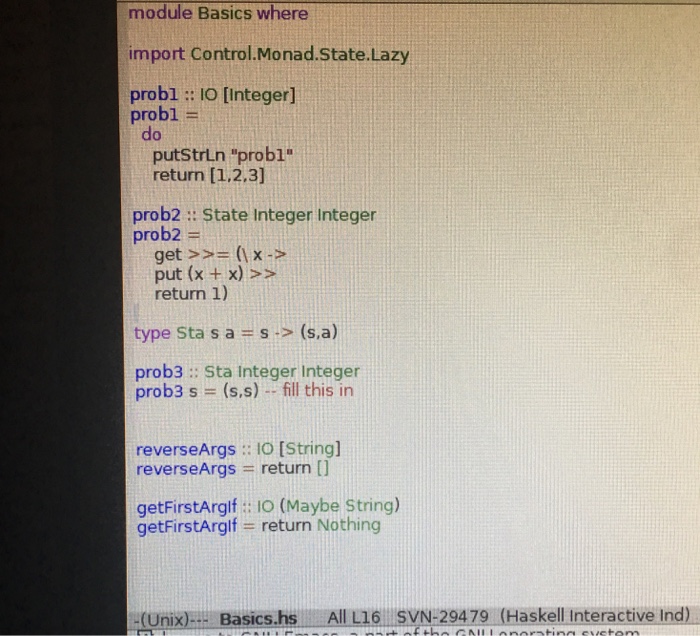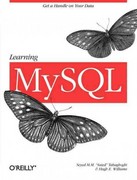Answered step by step
Verified Expert Solution
Question
1 Approved Answer
[Haskell] 1.) Fill in reverseArgs so that it gets the comand-line arguments, reverse them, and returns them. 2.) Fill in getFirstArgIf so it returns Just
[Haskell]

1.) Fill in reverseArgs so that it gets the comand-line arguments, reverse them, and returns them.
2.) Fill in getFirstArgIf so it returns Just x if there are command-line arguments and x is the first of these, and Nothing otherwise.
module Basics where import Control.Monad.State.Lazy probl: I0 [Integer] probl- do putStrLn "probl" return [1.2.3] prob2: State Integer Integer prob2 = get >>= (1 x-> put (x +x) return 1) type sta s a = s .> (sa) prob3: Sta Integer Integer proba s = (s's) .. fill this in reverseArgs :: 10 [Stringl reverseArgs = return [] getFirstArgif: 10 (Maybe String) getFirstArgif = return Nothing (Unix): Basics.hs All L16 SVN-29479 (Haskell Interactive Ind) module Basics where import Control.Monad.State.Lazy probl: I0 [Integer] probl- do putStrLn "probl" return [1.2.3] prob2: State Integer Integer prob2 = get >>= (1 x-> put (x +x) return 1) type sta s a = s .> (sa) prob3: Sta Integer Integer proba s = (s's) .. fill this in reverseArgs :: 10 [Stringl reverseArgs = return [] getFirstArgif: 10 (Maybe String) getFirstArgif = return Nothing (Unix): Basics.hs All L16 SVN-29479 (Haskell Interactive Ind)Step by Step Solution
There are 3 Steps involved in it
Step: 1

Get Instant Access to Expert-Tailored Solutions
See step-by-step solutions with expert insights and AI powered tools for academic success
Step: 2

Step: 3

Ace Your Homework with AI
Get the answers you need in no time with our AI-driven, step-by-step assistance
Get Started


